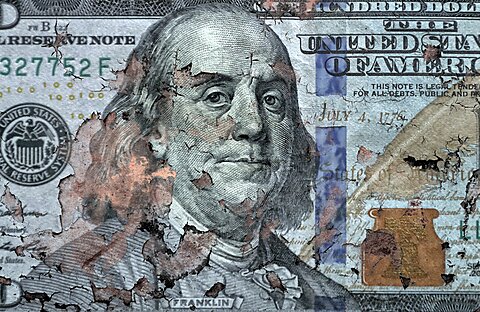Nicholas Anthony
Many people have expressed concerns that a central bank digital currency, or CBDC, is going to be used to replace cash. In fact, those concerns seemed to have been confirmed both in theory and in practice. For instance, some CBDC policies actively depend on there being no alternatives available (cash included). This theory was partially seen in practice when the Nigerian government pulled cash off the streets in a bid to spur CBDC use.
Yet, central bankers and other proponents of CBDCs have tried to distance themselves from these concerns. Rather than introduce a CBDC to end cash, some proponents claim cash is already ending so a CBDC must be introduced (a subtle distinction but a distinction nonetheless). For example, the European Central Bank has come out with statements that a CBDC is needed to preserve “a public means of payment” as cash use declines and a CBDC is needed to preserve the euro’s role as an “anchor of the monetary system.”
Yet why is cash use declining in the first place? Of course, the convenience of quickly tapping, inserting, or swiping a card is enough to sway many people. However, what often goes overlooked in this story is how many governments have worked hard over decades to make using cash more difficult. For example, Greece has a restriction that prohibits cash transactions over 500 euros and France prohibits citizens from paying taxes in cash for amounts over 300 euros. In fact, the thresholds and specific conditions can vary, but many countries within the European Union have instituted restrictions on cash payments (Table 1).
The US government is not as restrictive as European nations, but it’s no secret that it doesn’t love cash. For example, if someone is interested in paying taxes in cash, the Internal Revenue Service (IRS) first recommends using that cash to purchase a prepaid card or open a mobile app to make the payment.
In other words, the IRS first recommends not paying in cash.
If that doesn’t work, the IRS then recommends going to one of their retail partners to effectively have the cash converted and sent electronically. After that, the IRS suggests taxpayers consider using a money order or cashier’s check. It’s only after considering these examples that the IRS finally says an appointment can be made at select Taxpayer Assistance Centers, or TACs, as long as they have 30–60 days heads up.
The IRS isn’t the only place where the US government has made paying in cash more difficult. Under the Bank Secrecy Act, many businesses are required to report cash transactions to the federal government.
Technically, the law only applies to “financial institutions,” which might make you think it only applies to banks and credit unions. However, the law defines “financial institutions” as including a much broader list of companies. Banks and credit unions are included, but then there are also credit card companies, investment companies, brokers, dealers, currency exchanges, and money transmitters. The list doesn’t end there. It also includes jewelers, pawnshops, travel agencies, insurance companies, finance companies, telegraph companies, car dealerships, casinos, trust companies, and more.
Were that not enough, there are other laws that also require businesses to track and report cash use to the government. For example, under 26 U.S.C. § 6050I, anyone engaged in a business transaction of $10,000 or more in cash is required to report the transaction to the IRS within 15 days. The report must include the name and address of the payer, as well as their taxpayer identification number, the amount paid, the date, and the nature of the transaction. Failure to comply can result in a $25,000 fine or five years in prison.
These examples are not as harsh as outright restrictions, but the costs the US government has imposed affect people’s choices. As central bankers continue to try to tout the decline of cash as a reason to introduce a CBDC, let’s not forget the role governments have had in spurring that trend.
The author thanks Nicholas Thielman and Elan Rosen for their assistance collecting data on cash restrictions levied by European nations.

